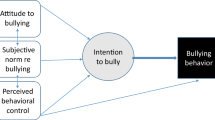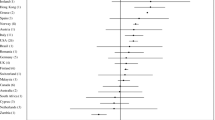Abstract
This study addresses the issue of illusion of incompetence among elementary school children. The first objective is to examine whether teachers are able to recognize children with an illusion of incompetence, The second objective is to see whether teachers’ appraisal of the behaviours and psychological characteristics of these children differ from their appraisals of other children. Seventy-four teachers and their 684 pupils from the fourth and fifth grades who were participating in a larger project were examined. By and large, only 31.3% of the pupils affected by an illusion of incompetence were identified as such by their teachers. However, teachers evaluated boys with an illusion of incompetence as being less autonomous, having a more negative mood and being more withdrawn than their peers. The teachers did not report these characteristics in girls with an illusion of incompetence. The discussion focuses on various hypotheses likely involved in teachers’ difficulty in identifying children whose self-appraisals of competence are negative.
Résumé
Cette étude s’intéresse au phénomène de l’illusion d’incompétence chez l’élève du primaire. Le premier objectif est d’examiner la sensibilité des enseignants à la présence du phénomène chez certains de leurs élèves en vérifiant dans quelle mesure ils sont capables de les identifier. Le second objectif est d’examiner comment ils évaluent diverses caractéristiques de ces mêmes élèves. Soixante-quatorze enseignants de 684 élèves de quatrième et cinquième année du primaire participant à un projet plus vaste portant sur les biais dans l’évaluation de leurs compétences ont été examinés. Dans l’ensemble, les enseignants identifient 31.3% des élèves affectés par l’illusion d’incompétence. Cependant, ils évaluent les garçons présentant ce problème comme étant plus retirés, d’humeur plus négative, et moins autonomes en classe que les autres garçons; aucune de ces différences n’est rapportée chez les filles. La discussion propose diverses hypothèses en regard de cette difficulté des enseignants à reconnaître ceux de leurs élèves ayant un important problème d’évaluation de leurs capacités.
Similar content being viewed by others
References
Achenbach, T.M. (1991).L’inventaire du comportement du jeune (traduction française du Child Behavior Checklist, CBCL/4-18). Burlington, University of Vermont.
Assor, A., & Connell, J.P. (1992). The validity of students’ self-reports as measures of performance affecting self-appraisals. In D.H. Schunk & J.L. Meece (Eds.),Student perceptions in the classroom (pp. 25–47). Hillsdale, NJ: Erlbaum.
Bandura, A. (1986).Social fondations of thought and action: A social cognitive theory. Englewood, NJ: Prentice-Hall.
Bandura, A. (1989). Human agency in social cognitive theory.American Psychologist, 44(9), 1175–1184.
Bandura, A. (1993). Perceived self-efficacy in cognitive development and functioning.Educational Psychologist, 28, 117–148.
Bouffard, T., & Bordeleau, L. (2002). Le rôle des agents sociaux dans l’ontogénèse des ressources motivationnelles du jeune élève. In L. Lafortune & P. Mongeau (Eds.),L’affectivité dans l’apprentissage (pp. 183–207). Presses de l’Université du Québec.
Bouffard, T., & Couture, M. (2003). Motivational profile and academic achievement among students enrolled in different schooling tracks.Educational Studies, 29, 19–38.
Bouffard, T., Boileau, L., & Vezeau, C. (2001). Students’ transition from elementary to high school and changes of the relationship between motivation and academic performance.European Journal of Psychology of Education, 16, 589–604.
Bouffard, T., Boisvert, M., & Vezeau, C. (2003). The illusion of incompetence and its correlates among elementary school children and their parents.Learning and Individual Differences, 14, 31–46.
Bouffard, T., Marcoux, M.F., Vezeau, C., & Bordeleau, L. (2003). Changes in self-perceptions of competence and intrinsic motivation among elementary school children.British Journal of Educational Psychology, 73, 171–186.
Bouffard, T., Vezeau, C., Chouinard, R., & Marcotte, G. (submitted). L’illusion d’incompétence et les facteurs associés chez l’élève du primaire.Revue Française de Pédagogie.
Bouffard, T., Markovits, H., Vezeau, C., Boisvert, M., & Dumas, C. (1998). The relation between accuracy of self-perception and cognitive development.British Journal of Educational Psychology, 68, 321–330.
Bressoux, P., & Pansu, P. (2001). Jugement scolaire et internalité des élèves. In G. Figari & M. Achouche (Eds.),L’activité évaluative réinterrogée: Regards scolaires et socioprofessionnels (pp. 196–205). Bruxelles: De Boeck Université.
Bressoux, P., & Pansu, P. (2003).Quand les enseignants jugent leurs élèves. Paris: Presses Universitaires de France.
Chapman, J.W., & Tunmer, W.E. (1995). Development of young children’s reading self-concepts: An examination of emerging subcomponents and their relationship with reading achievement.Journal of Educational Psychology, 87, 154–167.
Connell, J.P., & Ilardi, B.C. (1987). Self-system concommitants of discrepancies between children’s and teachers’ evaluations of academic competence.Child Development, 58, 1297–1307.
Dupeyrat, C. (2000).Conceptions de l’intelligence, orientations de buts et apprentissage autorégulé chez des adultes en reprise d’études. Unpublished doctoral dissertation. Université Toulouse II.
Dweck, C.S. (1986). Motivational processes affecting learning.American Psychologist, 41, 1040–1048.
Flammer, G.H. (1989). Developmental analysis of control beliefs. In A. Bandura (Ed.),Self-efficacity in changing societies (pp. 69–113). New York: Cambridge University Press.
Guilbert, D.J. (1990).Evaluation psychométrique du concept de soi chez l’enfant d’âge scolaire. Unpublished master dissertation. Université du Québec à Montréal.
Harter, S. (1982). The perceived competence scale for children.Child Development, 53, 87–97.
Harter, S. (1985). Competence as a dimension of self-evaluation: Toward a comprehensive model of self-worth. In R. Leahy (Ed.),The development of the self (pp. 55–122). New York: Academic Press.
Harter, S. (1990). Causes correlates, and the functional role of global self-worth: A life-span perspective. In R.J. Sternberg (Ed.),Competence considered (pp. 67–97). New Haven, CT: Yale University Press.
Harter, S. (1992). The relationship between perceived competence, affect, and motivational orientation within the classroom: Processes and patterns of change. In A.K. Boggiano & T.S. Pittman (Eds.),Achievement and Motivation: A social Developmental Perspective (pp. 77–114). Cambridge: Cambridge University Press.
Harter, S., & Pike, R. (1984). The pictorial scale of Perceived Competence and Social Acceptance for Young Children.Child Development, 55, 1969–1982.
Langer, E.J. (1979). The illusion of incompetence. In L.C. Perlmutter & R.A. Monty (Eds.).Choice and perceived control (pp. 301–313). Hillsdale, NJ: Erlbaum.
Jacobs, J.E., Lanza, S., Osgood, D.W., Eccles, J.S., & Wigfield, A. (2002). Changes in children’s self-competence and values: Gender and domain differences across grades one through twelve.Child Development, 73, 509–527.
Jones, S., & Myhill, D. (2004). “Troublesome boys” and “compliant girls”: Gender identity and perceptions of achievement and underachievement.British Journal of Sociology of Education, 25(5), 547–561.
Miserandino, M. (1996). Children who do well in school: Individual differences in perceived competence and autonomy in above-average children.Journal of Educational Psychology, 88, 203–214.
Nicholls, J. (1979). Development of perception of own attainment and causal attributions for success and failure in reading.Journal of Educational Psychology, 71, 94–99.
Otis, A.S., & Lennon, R.T. (1971).Epreuve d’habilité mentale Otis-Lennon. Niveau Élémentaire II. Forme J. Ottawa: Institut de Recherches psychologiques.
Pajares, F., & Valiante, G. (2001). Gender differences in writing motivation and achievement of middle school students: A function of gender orientation?Contemporary Educational Psychology, 26, 366–381.
Pansu, P., Bressoux, P., Leonesio, A.M., & Mezière, C. (2000). Pour une analyse de la construction du jugement scolaire.Psychologie et Education, 42, 51–66.
Phillips, D.A. (1984). The illusion of incompetence among academically competent children.Child Development, 55, 2000–2016.
Phillips, D.A. (1987). Socialization of perceived academic competence among highly competent children.Child Development, 58, 1308–1320.
Phillips, D.A., & Zimmerman, M. (1990). The Developmental Course of Perceived Competence and Incompetence among Competent Children. In R.J. Sternberg & J. Kolligian Jr. (Eds.),Competence Considered (pp. 41–66). Rew Haven, CT: Yale university press.
Pierre, P.A. (1999).Les indicateurs de l’effort scolaire selon les enseignants et enseignantes de niveau secondaire. Unpublished master dissertation. Université du Québec à Montréal.
Ruble, D.N., Grosovsky, E.H., Frey, K.S., & Cohen, R. (1992). Developmental changes in competence assessment. In A.K. Boggiano (Ed.),Achievement and motivation: A social developmental perspective. Cambridge studies in social and emotional development (pp. 138–164). New York, NY: Cambridge University Press.
Schommer, M., & Dunnell, P. A. (1994). A comparison of epistemological beliefs between gifted and non-gifted high school students.Roeper Review, 16, 297–210.
Stipek, D., & Gralinski, J.H. (1996). Children’s beliefs about intelligence and school performance.Journal of Educational Psychology, 88, 397–407.
Stipek, D., & MacIver, D. (1989). Development change in children’s assessment of intellectual competence.Child Development, 60, 521–538.
Wigfield, A., Eccles, J.S., & Pintrich, P.R. (1996). Development between the ages of 11 and 25. In D.C. Berliner & R.C. Calfee (Eds.),Handbook of educational psychology (pp. 148–185). New York: Simon & Schuster/Macmillan.
Author information
Authors and Affiliations
Corresponding author
Additional information
This research was supported by grants from The Social Sciences and Humanities Research Council of Canada (Government of Canada) and the Fonds FQRSC (Government of Quebec).
Rights and permissions
About this article
Cite this article
Fleury-Roy, MH., Bouffard, T. Teachers’ recognition of children with an illusion of incompetence. Eur J Psychol Educ 21, 149–161 (2006). https://doi.org/10.1007/BF03173574
Received:
Revised:
Issue Date:
DOI: https://doi.org/10.1007/BF03173574




